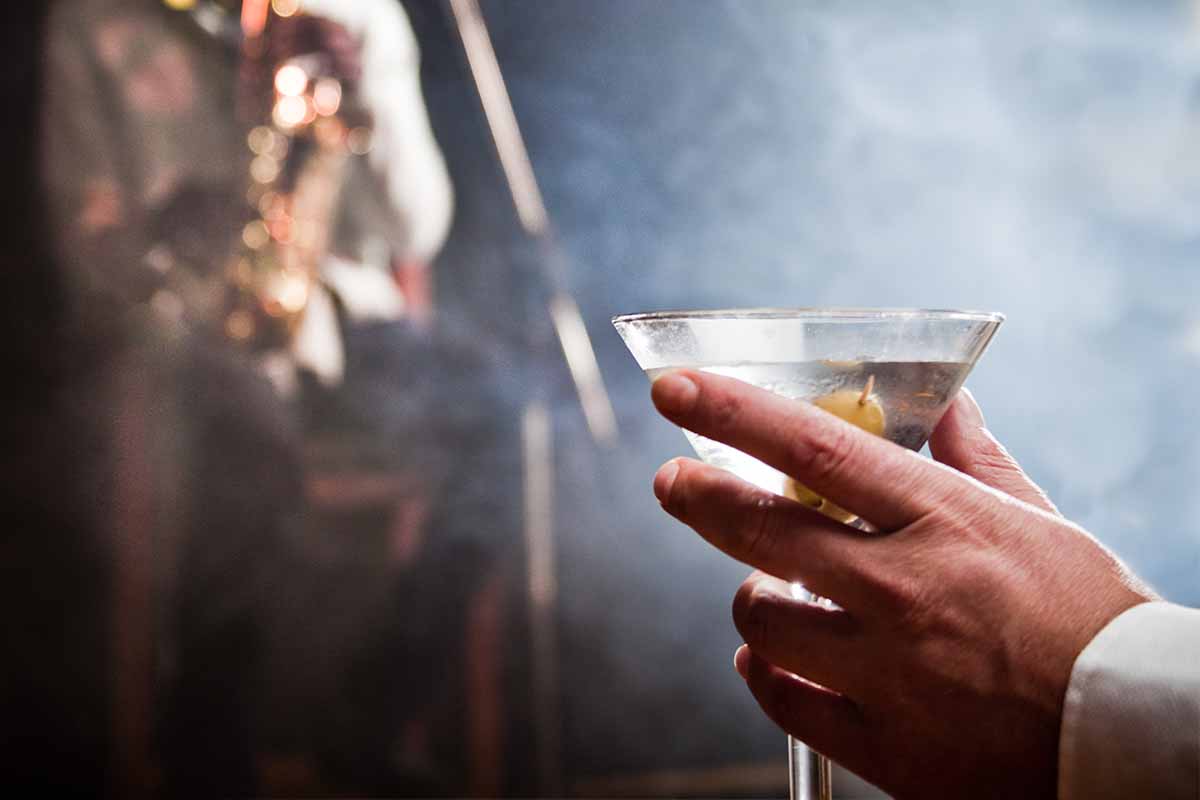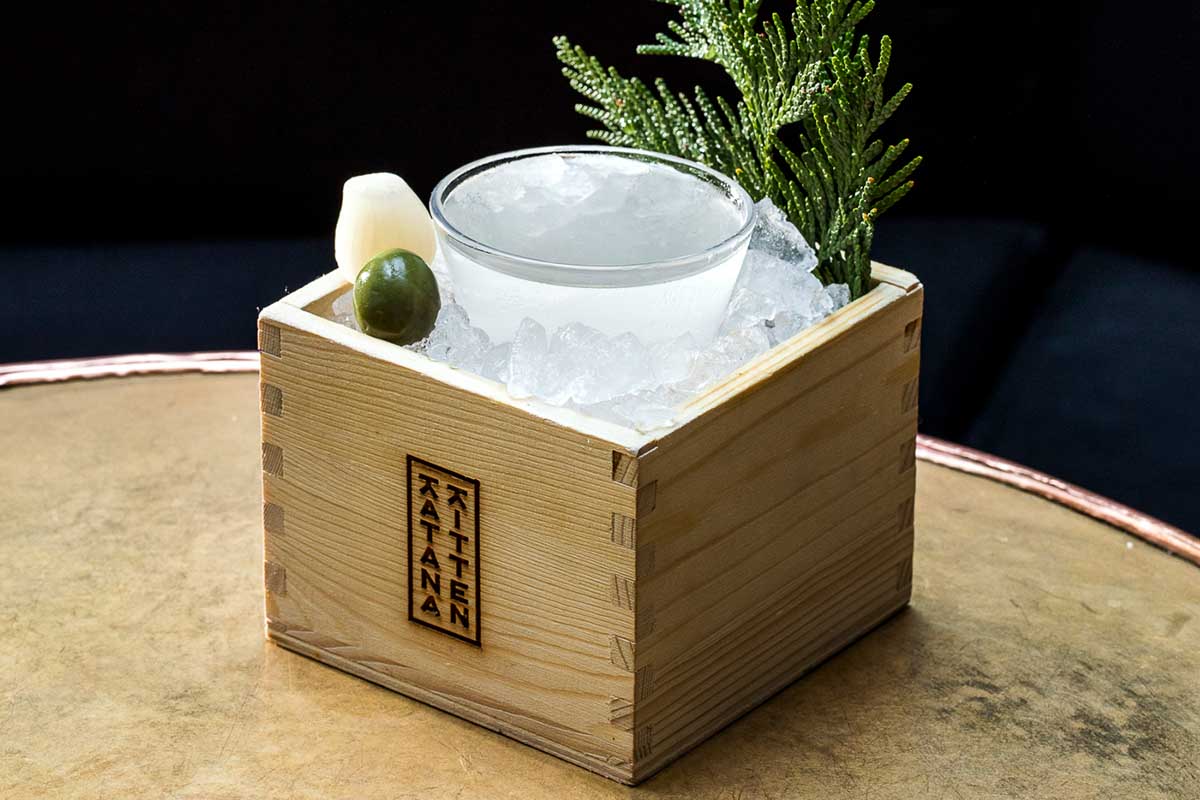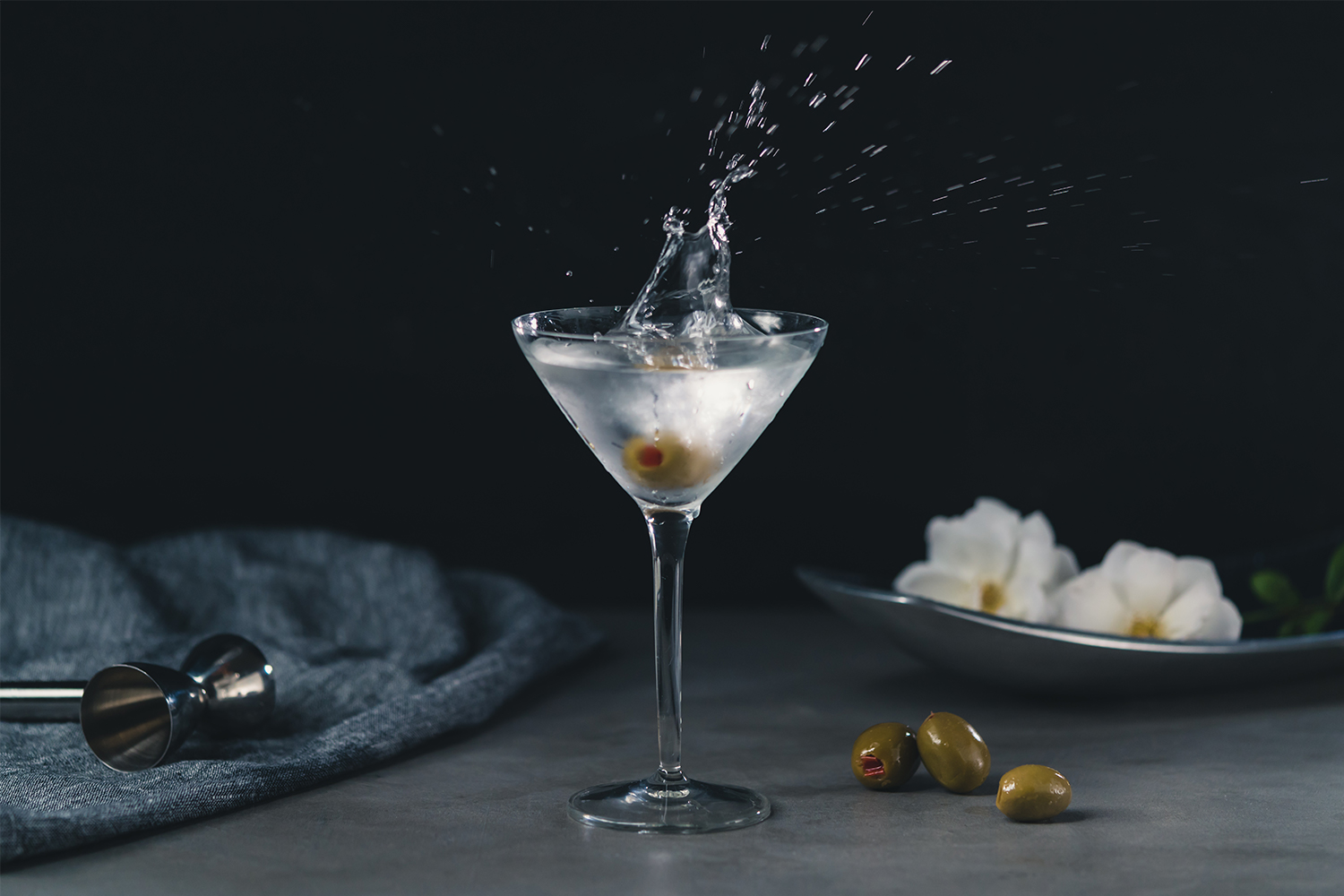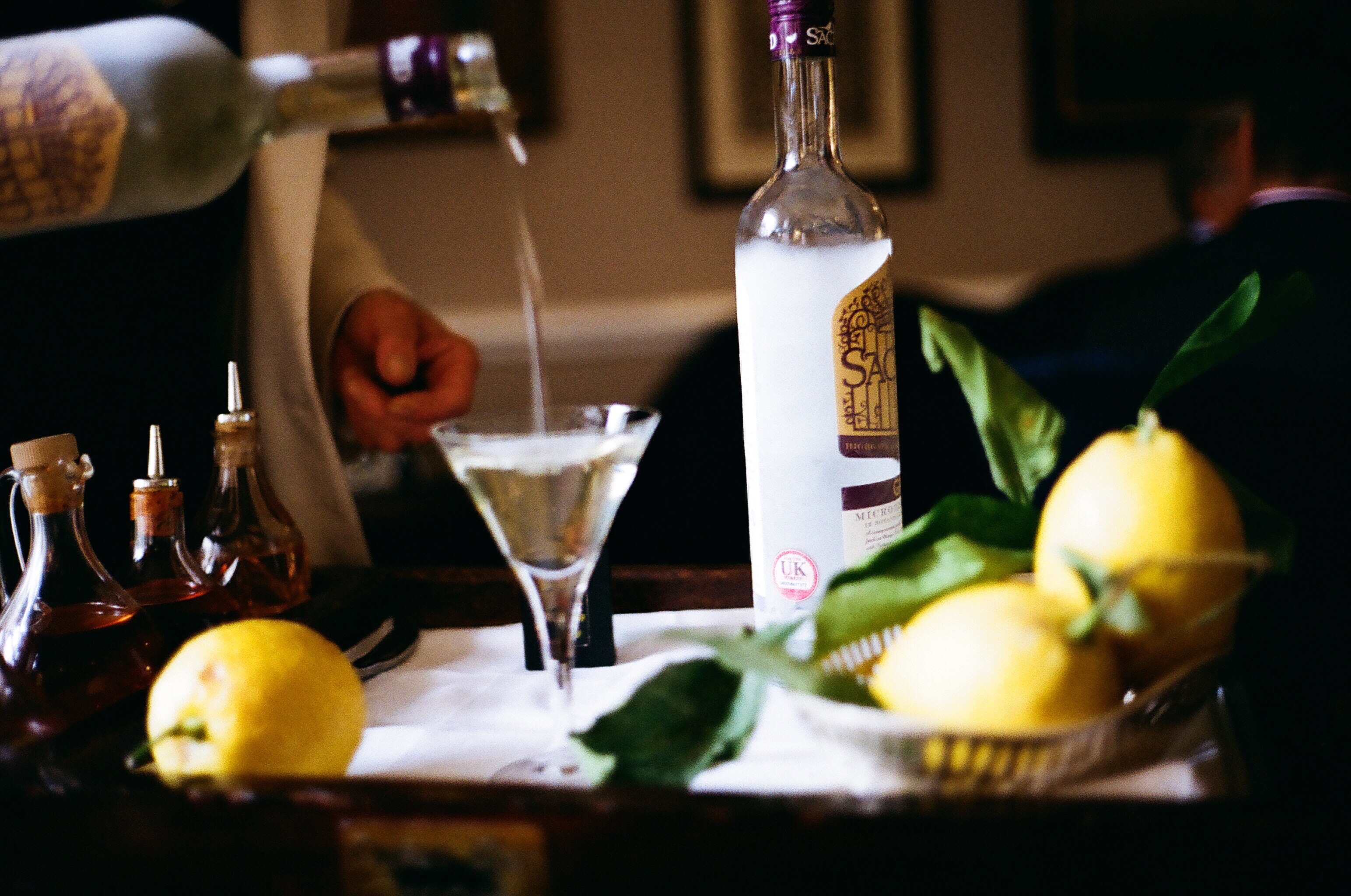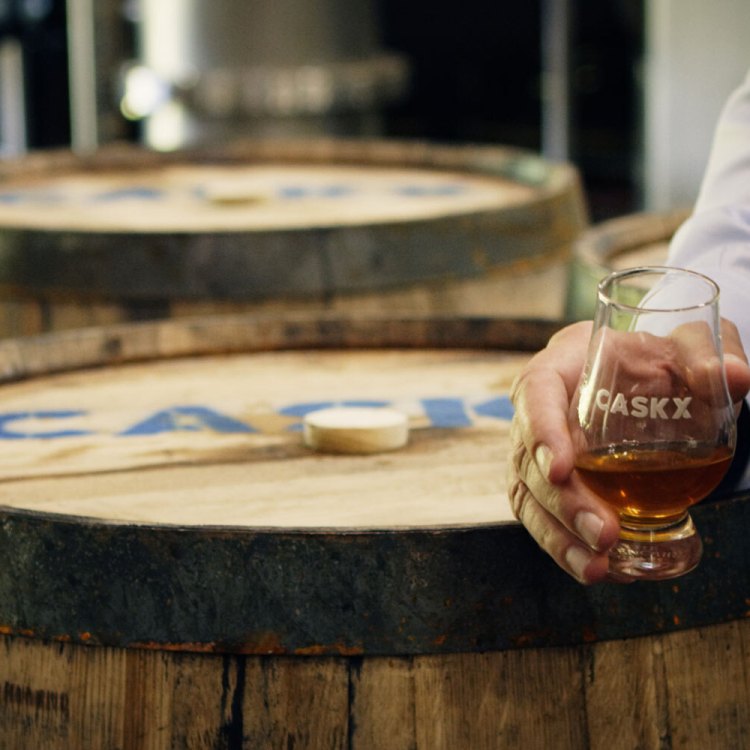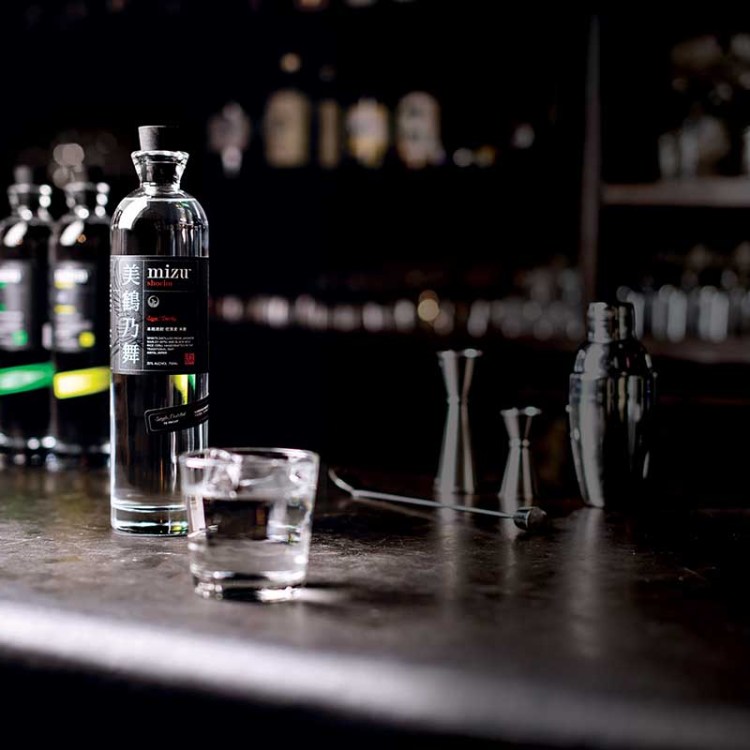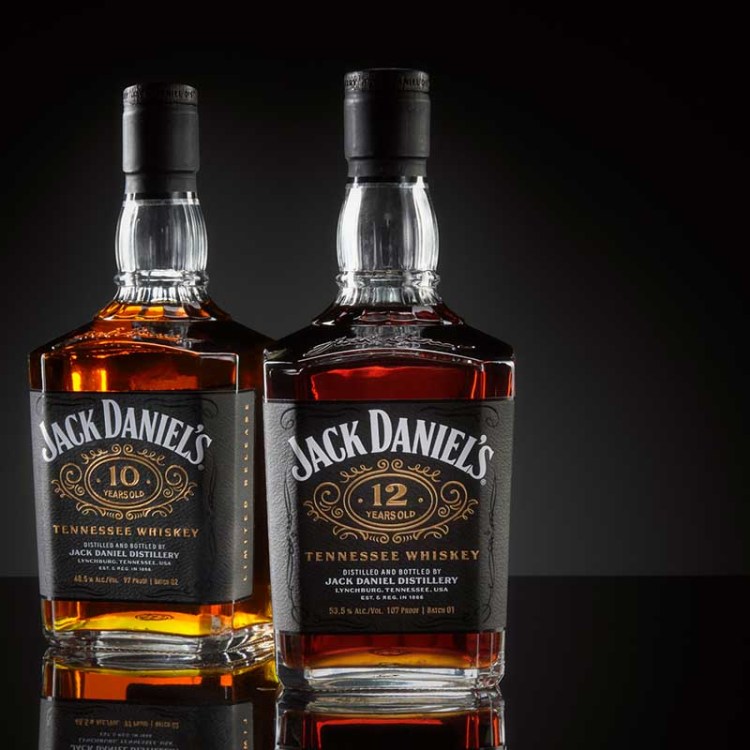At the start of the pandemic — back when we thought we’d be house-ridden for a week or two, rather than an amorphous, indefinite era — I made a simple promise to myself that I would learn to make what I considered a “perfect” Martini. I’ve had a lot of Martinis in my life, enough to know when one is good and when it isn’t, and to have formed my own arbitrary set of ideas as to what that qualifier — good — even means. While it’s bordering on passé to reference Everyday Drinking by Kingsley Amis when talking about cocktails, I do agree with him that “The best Dry Martini known to man” is actually a Gibson. For the novelist’s favorite version, you’d fill a small wineglass half full of water, let it freeze for about an hour, then pour in your gin, “flick in a few drops of vermouth” and add a couple of cocktail onions. In the words of Amis, “Now that is a drink.”
Obviously I am not going to argue with a dead man. It is a drink, and one that I love to make, but Amis wrote that years and years ago, back when you had maybe three choices for gin and one choice for vermouth, long before we all became mixologists at home, before we got stuck inside looking for anything to do. And so, in that weird stuck-at-home period nearly two years ago, I found myself toying with different kinds of gin and different kinds of vermouth in hopes of finding my perfect version of the Gibson.
I still haven’t, but the quest branched out. I wanted to figure out how to make a better Martini with a twist and, for my wife who doesn’t like gin, a perfect vodka Martini. I’m still trying out different things, still tinkering and playing, but somewhere along the way, I started to notice something interesting: that while I was getting obsessed with the Martini, it seemed other people were, also. Everybody, it seems, loves Martinis these days.
Now, I should point out that the Martini has never really gone out of style. In fact, I’d wager that over the last 50 years or so, it has probably remained the steadiest order as cocktail trends come and go. But over the last 15 or so years, as the big artisanal cocktail boom ushered back in all sorts of Prohibition-era drinks and resurrected a love for tiki and saw people getting more snooty about things like what bourbon they order, the field got more crowded. Bartenders began to get serious about crafting perfect Negronis and French 75s, dubbing them with new names as if they had reinvented a classic, when really all they’d done was use a specific kind of booze.
Whether or not the craft cocktail world is going to get back to where it was pre-pandemic, it feels like the future is bright for the Martini. One sign is a newfound interest in one of the main ingredients in the cocktail: vermouth. Places like Leland in Brooklyn, for instance, have an entire program dedicated to vermouth, and feature the fortified wine front and center on the drink menu. They serve it along with a twist, some olives and a back of seltzer water. It’s a perfect way to start a night that might include multiple Martinis.
If there’s any one person who could act as a weather vane as to which way the drinking trends are blowing, it’s Matt Hranek. The WM Brown publisher has, for the last few years, been the American mascot for another cocktail, the Negroni. But it’s not all Campari drinks for the guy; he recently put out his newest book on drinking culture, The Martini: Perfection in a Glass. As he tells InsideHook, there’s a simple reason why the drink endures: “It’s clear and uncomplicated. It packs a punch. It feels and looks sophisticated and elegant in the most dire of conditions.”

That, maybe more than anything, explains the Martini getting back to the top of the cocktail world. We’re desperate for sophistication and elegance, and these are pretty dire conditions. Need further proof? Look to the newfound popularity of the espresso martini. Why did it make a comeback among 20- and 30-something in cool cities? It’s not that easy to tell. Bartenders hate the drink, that’s for sure. Hranek is ambivalent about them. He says if he’s in a pinch and there’s no gin, that “it’s better to have one in hand than not.”
Whether you’ve been a Martini drinker for a long time or have found yourself ordering them more over the last two years, the fact is we likely all associate the drink with something. For me, a renewed interest in making great versions at home coincided with watching a number of movies centered around classy people from yesteryear. Clue, Gosford Park and especially The Thin Man. Nick and Nora Charles, Dashiell Hammett’s socialite mystery solvers, loved a good Martini, and the drinks look enticing as hell in their knowing hands. The Martini being the classy literary character’s cocktail of choice only makes it more preferable to me.
It turns out this sense of nostalgia is not unique; Hranek, for instance, goes immediately to Hawkeye Pierce from M*A*S*H. And upon having a Martini set in front of them recently, a friend of mine looked at his glass and commented that he was excited to finally see the new James Bond film. I asked if the Martini made him think of the world’s most famous secret agent, whose most famous phrase is him explaining how he likes his Martini. My friend smiled and said, “I suppose it is.” He thought for a second, then said, “I never used to drink these, but everything has felt like such a weird fantasy the last few years, every now and then it’s nice to escape into a nice drink that makes you think of better times.”
This article was featured in the InsideHook newsletter. Sign up now.

